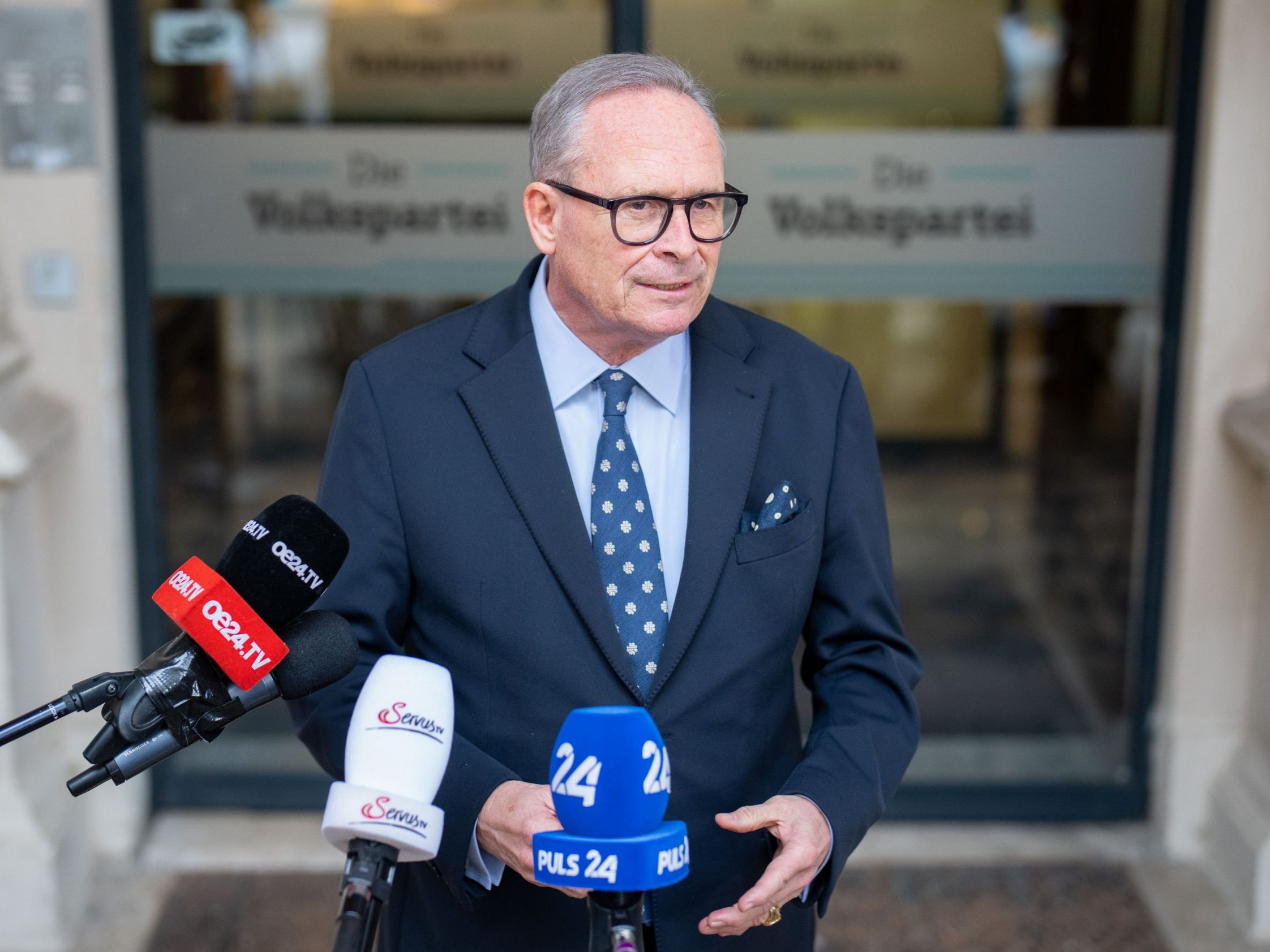Failed Coalition Negotiations: Reactions from the Federal States

After the failure of the blue-black coalition negotiations, there are different ideas on how to proceed. Tyrol's governor Anton Mattle (ÖVP) proposed a three-party coalition of ÖVP, SPÖ, and NEOS, but only without SPÖ leader Andreas Babler. There are differing views within the red regional organizations.
Mattle would prefer if Babler "steps aside". This could resolve the unresolved issues of the three-party negotiations. However, this will likely meet with little approval from the Social Democrats. The first to express this was Tyrol's acting SPÖ leader and deputy governor Philip Wohlgemuth: "The personnel of the SPÖ is solely a matter for the SPÖ." Otherwise, Wohlgemuth showed openness to negotiations.
Lercher Supporter of Expert Government
Steiermark's SPÖ leader Max Lercher has a different view. Instead of further negotiations, he prefers to see the political work in parliament strengthened in the free play of forces. "All parties are now challenged to work together in the interest of the population to develop solutions for the problems, vote on them, and implement them with broad support," said Lercher. Burgenland's governor Hans Peter Doskozil (SPÖ) echoed this sentiment, once again advocating for an expert government, a "phase of consolidation and cooling down", and then for new elections.
Ludwig and Mahrer Commented
Vienna's mayor and SPÖ leader Michael Ludwig emphasized in a conversation with "krone.tv" that it is now necessary for the reasonable forces to come together. "We have actually witnessed a shameful spectacle in recent days," he stated. ÖVP and FPÖ were only concerned with functions and positions. Now it is necessary to look at the country's budgetary situation and, for example, strengthen the labor market.
Ludwig hinted that he would involve himself in any potential talks: "We have big tasks to solve, and if I can contribute to that, I will gladly do so." He also insisted that he never hoped for the bogeyman of an FPÖ/ÖVP government for the Vienna election. "Anyone who knows me knows that the welfare of the state is more important to me than party interests."
Now it is up to the Federal President to decide how to proceed, emphasized Vienna's VP leader Karl Mahrer during a brief media appearance in front of the party headquarters. The offers from the SPÖ and NEOS to resume talks should be "taken seriously", said Mahrer: "I believe everything is important now that contributes to us quickly getting a responsible and stable federal government."
Stelzer "Not at All Pleased"
The Governor of Upper Austria, Thomas Stelzer (ÖVP), is "not at all pleased" and shifts the responsibility for the failure to the FPÖ: Their leader Herbert Kickl never gave the impression of being interested in cooperation. The ÖVP has gone beyond its limits, "but we have always said that there will be no government formation at any cost."
Salzburg's Deputy Governor Marlene Svazek (FPÖ) expressed frustration and disappointment. "My disappointment is great, and as someone who has negotiated a lot of good content for rural areas, it is also frustrating," Svazek stated in an initial response. The negotiations have always been about the well-being of Austria and its people. "I am also sorry about the situation because, first and foremost, the population suffers from it, and trust in politics will continue to decline."
Hofer: "Missed Opportunity"
Disappointed by the failure of the government negotiations, the Burgenland FPÖ club chairman Norbert Hofer spoke of a "missed opportunity for stability and economic security." In view of the current economic challenges, a stable and decisive government was needed from his perspective. "The fact that this did not succeed is not only disappointing but also dangerous for Austria's economic future and social cohesion," said Hofer, who blamed the ÖVP for the failed coalition negotiations. They demanded "an unreasonable concentration of power" with all key departments, which made "fair cooperation" impossible.
"Great" was also the disappointment for Tyrol's FPÖ leader Markus Abwerzger. "At the same time, my lack of understanding for an ÖVP that apparently has not recognized the signs of the times and wants to stick to a 'business as usual' approach. Perhaps it would really be time for the ÖVP to regenerate in the opposition," Abwerzger explained.
LIVE Blog After End of Coalition Negotiations
(APA/Red)
This article has been automatically translated, read the original article here.





